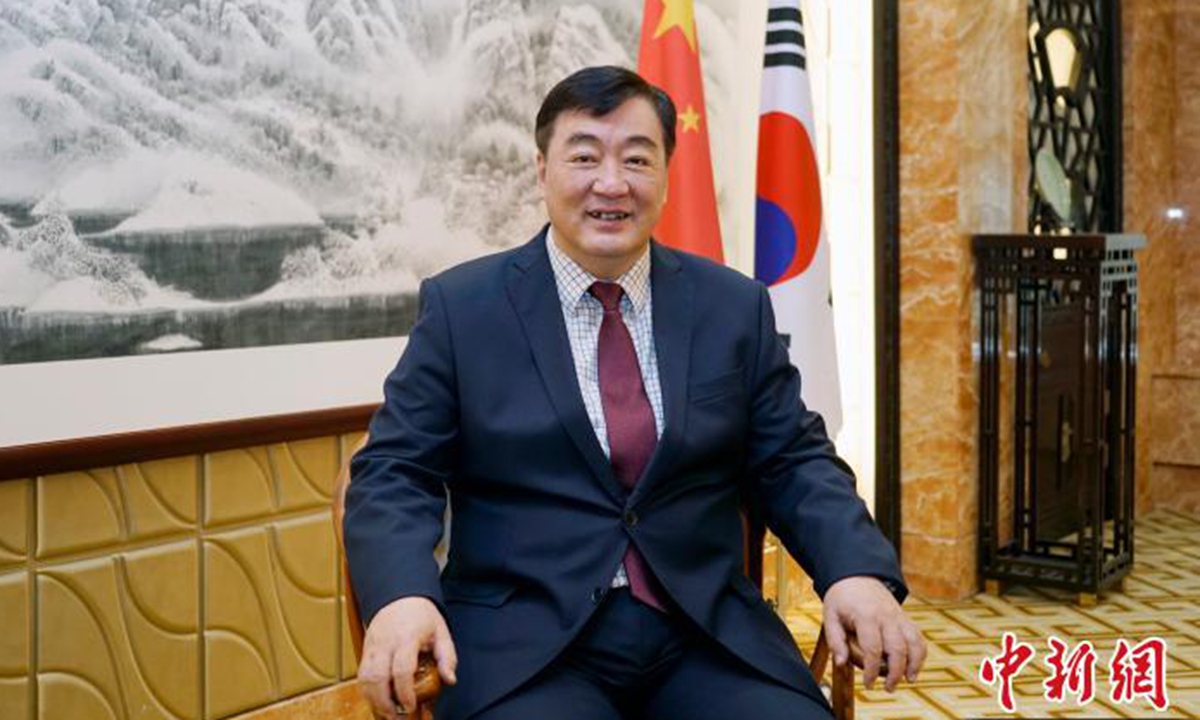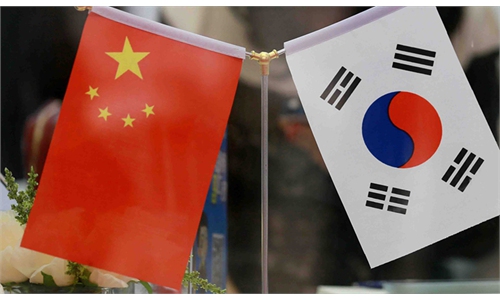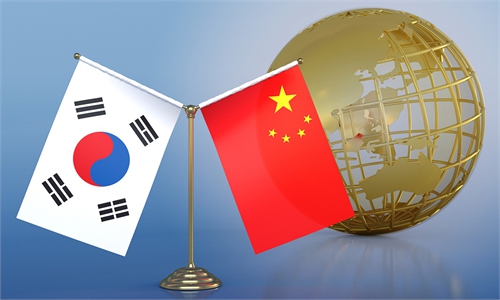Chinese envoy denies 'ban on S.Korean entertainment,' appreciates Seoul's sticking to one-China principle

Chinese Ambassador to South Korea Xing Haiming. Photo:Chinanew.com
Chinese Ambassador to South Korea Xing Haiming denied the so-called ban on South Korean entertainment, citing imports of cultural products since 2021, and appreciated the country's stance of staying committed to the one-China principle amid US house speaker Nancy Pelosi's provocative visit to the island of Taiwan, in an interview with Channel A aired on Wednesday.
China attaches great importance to cultural and personnel exchanges with South Korea, yet such communication requires support from the people. Due to complicated reasons, the public opinion saw decline of mutual people-to-people favorability in the short term and affected the cultural and personnel exchanges, Xing said.
But these problems are temporary and since 2021, 10 South Korean films, 10 TV dramas and four games have been imported to China, and Xing hoped that enhanced communication can help repair people's feelings toward each other.
Xing noted friendliness has been mainstream of the mutual feelings and he felt people from different walks of life are kind to China. He attributed the decline of mutual kindness to lack of communication due to the epidemic and some misunderstandings.
It is normal to have debates on some topics given the deeply intertwined history and culture, and frequent contact. But the debates are prone to easily evolve into big problem through media and online hypes, Xing said.
Xing urged rational way of handling debates on history and culture to prevent politicization of academic discussions and cast aside rocky topics. Both sides should not mistakenly believe in fake information and hype-ups, Xing said, expressing the hope that media in both countries can play a positive role.
As for the other hot topic of the THAAD, Xing said today's world is a whole, and the security environment of all countries shares weal and woe. No one can only care about its own safety and ignore the safety of others. THAAD is in the hands of the US and is deployed in places closest to China, seriously damages China's strategic security interests. The THAAD issue once became the biggest challenge for China-South Korea ties since the establishment of diplomatic relations.
Both sides believe the THAAD issue should not be stumbling block of bilateral relations. China is the victim on the issue and has the right to speak out and express concerns, and take measures to safeguard its interests, Xing said, hoping South Korea can understand it.
In any case, THAAD should not target China, and China won't agree to anything that harms China's strategic security interests. It is hoped that the two sides will abide by the consensus, avoid mutual provocations, and prevent the problem from re-emerging, the ambassador said.
Xing also appreciated South Korean government's one-China stance.
Despite China's stern warnings, Pelosi made a highly provocative visit to the island of Taiwan in early August. When she traveled to South Korea after the Taiwan visit, South Korean President Yoon Suk-yeol had a phone conversation instead of meeting her in person.
US' wrongdoing has also been widely opposed by the international community. So far, more than 170 countries and international organizations have publicly expressed their support for the one-China principle and South Korean government also reiterated its one-China stance.
"I hope and believe that South Korea will continue to assume a right stance on topics concerning China's core interests," Xing stressed.
On the Korean Peninsula nuclear issue, Xing said China's stance is consistent. China opposes any party on the peninsula possessing nuclear weapons, insists on maintaining peace and stability on the peninsula, and encourages resolving the issue through dialogue and consultation, be it between North Korea and the US or between South and North Korea.
Recently, the situation on the peninsula has become tense again and China has been doing its part in its own way. Xing stressed that the main contradictions of the Korean Peninsula nuclear issue are between North Korea and the US. The key to solving the problem lies in the hands of the two, and the US should respond to North Korea's legitimate security concerns.
At the same time, South Korea and North Korea belong to the same ethnic group, and they are bonded by culture and history. It is like a pair of brothers fighting each other, and China, as neighbor of both, plays a mediating role. But ultimately, North and South Korea are the owners of the peninsula. "We always support the North and the South to improve mutual relations and promote reconciliation and cooperation through dialogue," Xing said.
China and South Korea's establishment of diplomatic relations 30 years ago not only brought about benefits to peoples but also contributed to regional and global prosperity and development.
Standing at a higher level, the two countries shoulder greater responsibilities and sound China-South Korea relations will benefit both sides, the region and the world, Xing noted.


